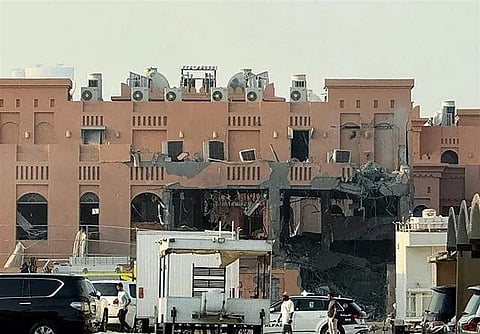

On October 2, 2025, President Donald Trump signed an executive order granting Qatar a major US security guarantee, a move that comes as a direct response to an Israeli airstrike on Doha just weeks earlier . This assurance, however, is being met with deep skepticism, with regional analysts questioning the reliability of American promises and viewing the move as a superficial fix to a profound breach of trust between allies .
The unprecedented security assurance was precipitated by a shocking event on September 9, 2025, when Israeli fighter jets struck a building in Doha, targeting Hamas leaders who were involved in ceasefire negotiations . The attack, which resulted in the death of a Qatari security officer, was a stark violation of the country's sovereignty and sent shockwaves through the Gulf region . Qatar, which hosts the massive Al Udeid Air Base, the headquarters of U.S. Central Command found its safety and its long-standing relationship with the U.S. thrown into question . The incident forced the Qatari government to demand concrete assurances that such an attack would not be repeated, leading to the current executive order .
Despite the strong language of the guarantee, several critical factors render its reliability dubious. First and foremost, the guarantee was issued unilaterally by the President via an executive order, which is not a legally binding treaty ratified by the U.S. Senate . This means the promise lacks long-term stability and could be easily reversed by a future administration, making it a temporary political commitment rather than a steadfast pillar of international law .
Furthermore, the timing and context of the order expose a deep inconsistency in U.S. foreign policy. Just days after the attack on Qatar, Israeli Prime Minister Benjamin Netanyahu publicly threatened to launch new attacks on Qatari soil if it refused to expel Hamas political representatives . This brazen defiance from a top U.S. ally, coming after the initial strike, severely undermines Washington's authority and casts doubt on its ability to control the actions of its partners . For many observers, if the U.S. cannot restrain Israel, its closest regional ally, then its promises to protect Qatar appear even less assured .
This is not an isolated incident that has cast doubt on the American security umbrella. Regional analysts point to the 2019 attack on Saudi Arabia's Abqaiq oil facilities, which halved the kingdom's oil output, as a previous moment where Washington's response fell short despite Riyadh being a longtime ally . The Doha strike has intensified these existing doubts, forcing Gulf leaders to confront a harsh reality: dependence on U.S. security guarantees is increasingly unreliable .
The Israeli strike on Doha and the subsequent U.S. response are seen as a watershed moment that has shattered long-held illusions in the Gulf . For decades, Gulf monarchies operated under the belief that they could act as neutral mediators and secure allies of Washington simultaneously. The attack demonstrated that this neutrality is no longer safe, and perhaps no longer possible . The event has served as a stark wake-up call, compelling nations across the region to question the very foundation of their security strategies and reconsider who they can legitimately rely on for protection in an increasingly volatile landscape .